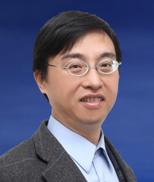
Chin-Teng Lin
Professor
Department of Electrical Engineering
活动家是第三方嘉宾邀约平台。可根据演讲议题、会议日期、活动预算等要求,为您提供该领域内专业嘉宾演讲邀约服务。您可准备好活动信息后,联系客服电话:18911802888(工作日9时至18时,仅邀约嘉宾出席活动,其他需求勿扰)
Dr. Chin-Teng Lin received the B.S. degree from National Chiao-Tung University (NCTU), Taiwan in 1986, and the Master and Ph.D. degree in electrical engineering from Purdue University, USA in 1989 and 1992, respectively. He is currently the Chair Professor of Faculty of Engineering and Information Technology, University of Technology Sydney, Chair Professor of Electrical and Computer Engineering, NCTU, International Faculty of University of California at San-Diego (UCSD), and Honorary Professorship of University of Nottingham. Dr. Lin was elevated to be an IEEE Fellow for his contributions to biologically inspired information systems in 2005, and was elevated International Fuzzy Systems Association (IFSA) Fellow in 2012. He is elected as the Editor-in-chief of IEEE Transactions on Fuzzy Systems since 2011. He also served on the Board of Governors at IEEE Circuits and Systems (CAS) Society in 2005-2008, IEEE Systems, Man, Cybernetics (SMC) Society in 2003-2005, IEEE Computational Intelligence Society (CIS) in 2008-2010, and Chair of IEEE Taipei Section in 2009-2010. Dr. Lin is the Distinguished Lecturer of IEEE CAS Society from 2003 to 2005, and CIS Society from 2015-2017. He served as the Deputy Editor-in-Chief of IEEE Transactions on Circuits and Systems-II in 2006-2008. Dr. Lin was the Program Chair of IEEE International Conference on Systems, Man, and Cybernetics in 2005 and General Chair of 2011 IEEE International Conference on Fuzzy Systems. Dr. Lin is the coauthor of Neural Fuzzy Systems (Prentice-Hall), and the author of Neural Fuzzy Control Systems with Structure and Parameter Learning (World Scientific). He has published more than 200 journal papers (Total Citation: 19,166, H-index: 53, i10-index: 332) in the areas of neural networks, fuzzy systems, multimedia hardware/software, and cognitive neuro-engineering, including approximately 101 IEEE journal papers.
